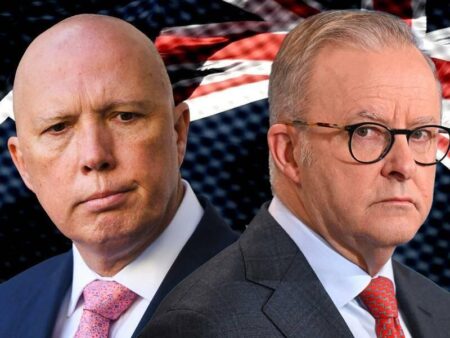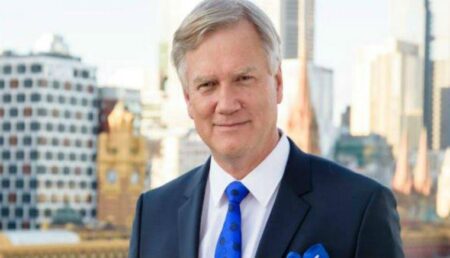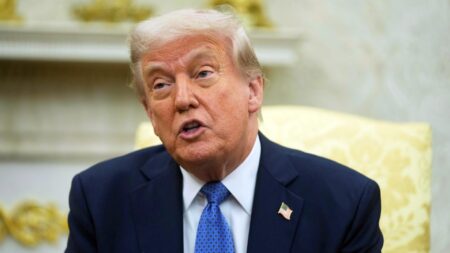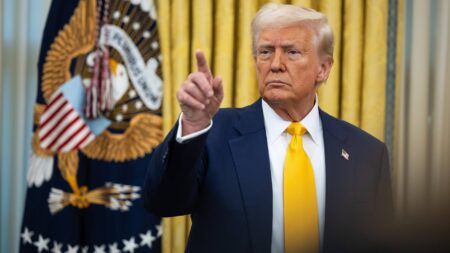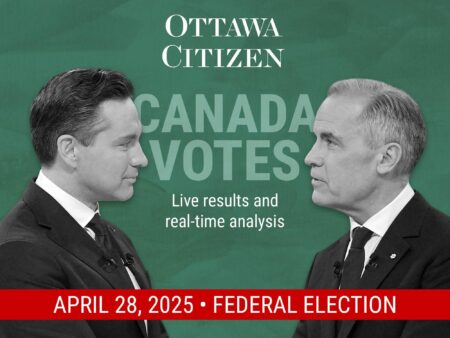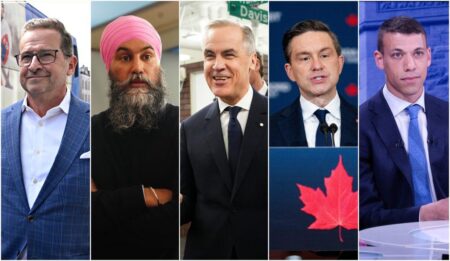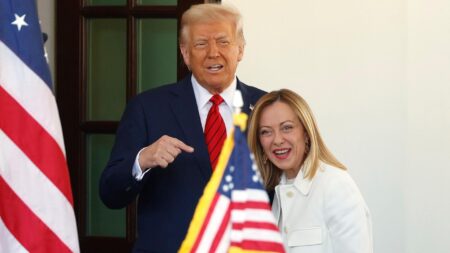Argentinians dealt a striking blow to Javier Milei’s scandal-plagued government in recent elections, revealing mounting public frustration amid a storm of controversies. These results highlight the challenging path that lies ahead for Milei’s administration
Browsing: voter sentiment
Crunch time for Argentina: this weekend’s local elections are shaping up as a crucial referendum on Javier Milei. Market watchers are on high alert, eagerly scanning the results for clues about the nation’s political direction amid persistent economic uncertainty
In a captivating recent segment on CNN, analyst Harry Enten delved into how Australians view Donald Trump’s impact on their country. His analysis uncovers a fascinating tapestry of opinions, showcasing a blend of admiration and apprehension surrounding Trump’s political legacy
In the aftermath of Peter Dutton’s electoral loss, Sky News commentators, notably Andrew Bolt, voiced their frustration, arguing that voters failed to grasp the Coalition’s vision. Bolt’s comments underscore a widening rift between conservative media perspectives and the feelings of the electorate
In the 2025 Australian election, opposition leader Peter Dutton experienced a stunning defeat, largely due to his coalition’s unclear policies and growing public frustration over economic management. Analysts point out that his inability to connect with crucial voter demographics played a significant role in this outcome.
At a lively rally in Michigan, former President Trump passionately defended his first 100 days in office, even as his poll numbers took a nosedive. He highlighted crucial agenda points, focusing on revitalizing the economy and ensuring border security, all while energizing his supporters to stand by him for the challenges ahead.
In a remarkable political turnaround, Erin Carney triumphed in her Canadian riding, propelled by a wave of discontent with Donald Trump’s policies. Voters came together, united in their resolve to counteract the divisiveness they felt, sending a powerful message: “Trump is trying to break us.”
Exciting new projections for the upcoming Canadian election reveal that Mark Carney’s Liberals are on track for a potential victory! Meanwhile, it seems that Donald Trump’s influence is creating headwinds for the Conservatives. Analysts point to evolving voter sentiments as a crucial factor in the Liberals’ strong positioning.
Germany’s upcoming chancellor, Friedrich Merz, is grappling with a rising tide of unpopularity as worries mount over his conservative policies and a disconnect with younger voters. Detractors suggest that his leadership approach may struggle to connect in an evolving political landscape, adding layers of complexity to his role.
Australia’s Labor Party is on the brink of a significant triumph in the highly anticipated May 3 election, as revealed by a recent Bloomberg poll. With an upswing in voter enthusiasm, the party seems to be harnessing pivotal issues that resonate with the electorate just in time for this critical decision.
As Canada prepares for the pivotal 2025 federal election, the political scene is heating up with recent polls revealing an excitingly competitive atmosphere. The Liberal Party currently enjoys a narrow lead, but the Conservatives are closing in fast, igniting discussions about a possible shift in power that could reshape the nation’s future.
Recent data reveals a fascinating divide among Americans when it comes to Trump’s views on Ukraine and Russia. On one side, many applaud his focus on prioritizing American interests, seeing it as a bold move. On the other hand, there are growing concerns about his seemingly soft approach towards Moscow, especially in light of the escalating tensions. This split in opinion highlights the complexity of foreign policy in today’s world.
With election day just around the corner, Carney’s Liberals are holding onto a slim lead in the polls, but the race is heating up with only six days to go. Voter sentiment is evolving rapidly, turning this contest into a thrilling showdown as parties intensify their campaigns across the country.
Pierre Poilievre’s central appeal as a staunch fiscal conservative is now facing scrutiny, with critics arguing that his rigid stance on economic issues alienates moderate voters. This evolution could impact his campaign’s viability in upcoming elections.
As the Canadian elections approach, recent polls indicate a tightening race between Mark Carney and Pierre Poilievre. Analysts suggest Carney’s economic background may resonate with voters, but Poilievre’s established base presents a formidable challenge.
In a stark reversal from his optimistic forecasts, former President Trump now warns Americans of impending economic turbulence. As inflation rises and market volatility persists, many are questioning the sustainability of his earlier promises of a robust economic boom.
In a significant political shift, Germany’s Friedrich Merz declared victory for his conservative party as exit polls indicated substantial gains for far-right factions. This outcome reflects a changing electoral landscape and raises questions about future governance.
Germany’s political landscape has been shaken by sudden turbulence as shifting voter sentiments challenge established parties. A surge in populism and new coalitions are reshaping the electoral map, raising questions about the country’s future governance.



